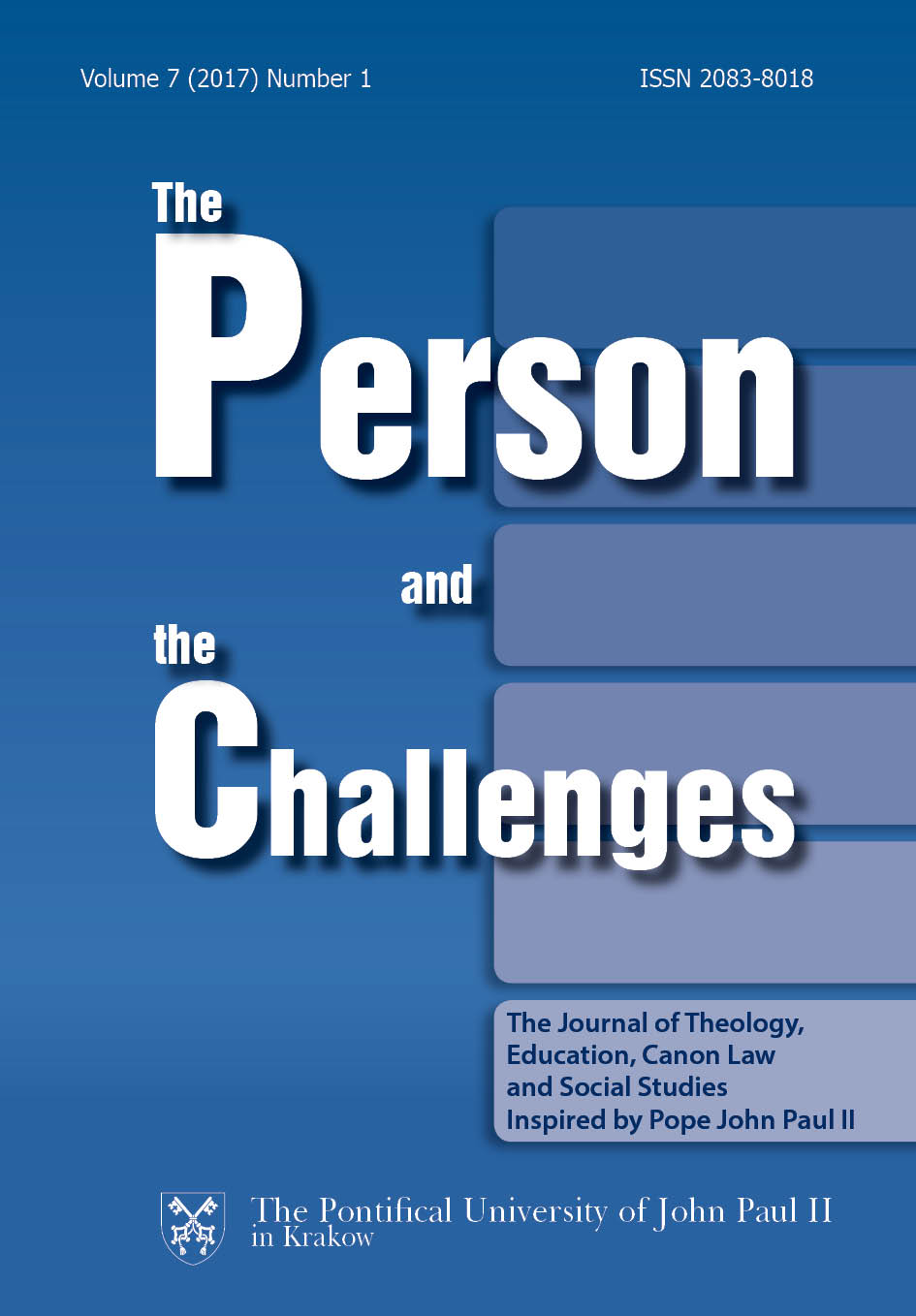Administration of Ecclesiastical Temporal Goods in the Light of the Instructions of the Polish Episcopal Conference of 2015
DOI:
https://doi.org/10.15633/pch.1989Słowa kluczowe:
Administration of Ecclesiastical Temporal Goods, Canon Law, Episcopal Conference, Instructions of the Polish Episcopal ConferenceAbstrakt
The mission of the Church is evangelisation and not acquisition of capital. It is good if the Church has sufficient financial means necessary to fulfil its mission. The Catholic Church has the inherent right, independently of any secular power, to acquire, retain, administer and alienate temporal goods, in pursuit of its proper objectives (can. 1254 of the Code of Canon Law). In order to fulfil its mission in the world, the Church needs to be supported by appropriate material goods and the freedom to administer them. The Code of Canon Law of 1983 introduced a new regulation regarding ecclesiastical property, so as to make sure that the Church could better suit the concept of a “poor Church” that, being in the need of economic resources to achieve its goals, focuses on the instrumental task of such resources: so that the faithful fulfilled their duty in the form of helping in maintaining the Church and its works as part of their fundamental rights and obligations related to the temporal goods; so that spiritual goal of ecclesiastical offices was emphasised and the revenues received were justly distributed. The Polish Episcopal Conference on 25 August 2015 approved the Instruction on the Administration of Ecclesiastical Temporal Goods. In the present article four points will be discussed: The right of the Church to the acquisition, holding and alienating of temporal goods; the Instruction of the Polish Episcopal Conference on the acquisition of temporal goods; the Instruction of the Polish Episcopal Conference on the administration of temporal goods and contracts; the Remuneration for priests.Bibliografia
Bączkowicz F., Prawo kanoniczne. Podręcznik dla duchowieństwa, t. II, Opole 1958.
De Paolis V., I beni temporali della Chiesa, Bologna 1995.
Incitti G., La Chiesa particolare, en: Corso istituzionale di Diritto Canonico, Milano 2005.
Goti Ordeñana, J., Financiación de la Iglesia, “Revista Española de Derecho Canónico” 58 (2001), p. 699–748.
Kantor R., Odpowiednie wynagrodzenie duchownych w Kodeksie Prawa Kanonicznego z 1983 r. Analiza kan. 281 § 1, „Prawo Kanoniczne” 54 (2011) nr 3–4, s. 191–222.
Konferencja Episkopatu Polski, Instrukcja w sprawie zarządzania dobrami doczesnymi Kościoła, in: http://episkopat.pl/dokumenty/6918.1,Instrukcja_KEP_w_sprawie_zarzadzania_dobrami_doczesnymi_Kosciola.html (15.11.2015).
López Alarcón M., De los bienes temporales de la Iglesia, in: eds. A. Marzoa, J. Miras, R. Rodriguéz‑Ocaña, Comentario exegético al Código de Derecho Canónico, vol. IV/1, Pamplona 1997, p. 25–40.
Martínez Aguilar F. R., Las normas sobre la administración económica en las Iglesias particulares. En especial su aplicación en el derecho particular del cono sur latinoamericano, Montevideo 1998.
Schouppe J. P., Elementi di Diritto Patrimoniale Canonico, Milano 1997.
Sztafrowski E., Podręcznik Prawa Kanonicznego, t. 3, Warszawa 1986.
Pobrania
Opublikowane
Numer
Dział
Licencja
Prawa autorskie (c) 2017 Robert Kantor

Utwór dostępny jest na licencji Creative Commons Uznanie autorstwa 4.0 Międzynarodowe.
Twórca oświadcza, że służą mu prawa autorskie do utworu i że nie są ograniczone w zakresie objętym niniejszym oświadczeniem oraz że utwór jest dziełem oryginalnym i nie narusza praw autorskich innych osób.
Twórca zezwala Uniwersytetowi Papieskiemu Jana Pawła II w Krakowie na nieodpłatne, niewyłączne i nieograniczone w czasie korzystanie z utworu, to jest:
- utrwalanie i zwielokrotnianie: wytwarzanie egzemplarzy utworu techniką drukarską, reprograficzną, zapisu magnetycznego oraz techniką cyfrową;
- obrotu oryginałem albo egzemplarzami, na których utwór utrwalono (wprowadzanie do obrotu, użyczenie lub najem oryginału albo egzemplarzy, publiczne wystawienie, wyświetlenie, a także publiczne udostępnianie utworu w taki sposób, aby każdy mógł mieć do niego dostęp w miejscu i w czasie przez siebie wybranym);
- włączenie utworu w skład utworu zbiorowego;
- udzielanie przez Uniwersytet Papieski Jana Pawła II w Krakowie sublicencji Creative Commons Uznanie autorstwa 4.0 Międzynarodowe (CC BY 4.0)
Uniwersytet Papieski Jana Pawła II w Krakowie udostępnia utwór na Platformie Czasopism należącej do uczelni, na licencji Creative Commons Uznanie autorstwa 4.0 Międzynarodowe (CC BY 4.0). Tym samym uprawnia wszystkich zainteresowanych do korzystania z utworu pod następującymi warunkami:
- zostanie podany autor i tytuł utworu,
- zostanie podane miejsce publikacji (tytuł czasopisma i adres internetowy do oryginalnie opublikowanego utworu).

